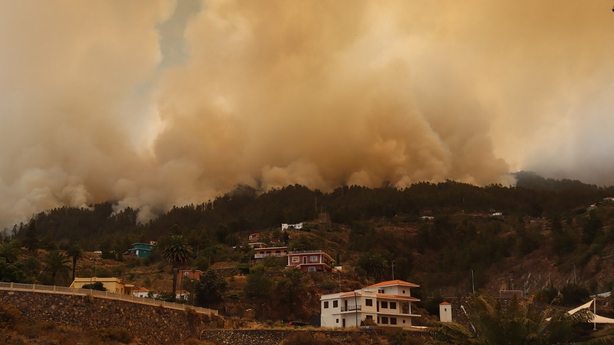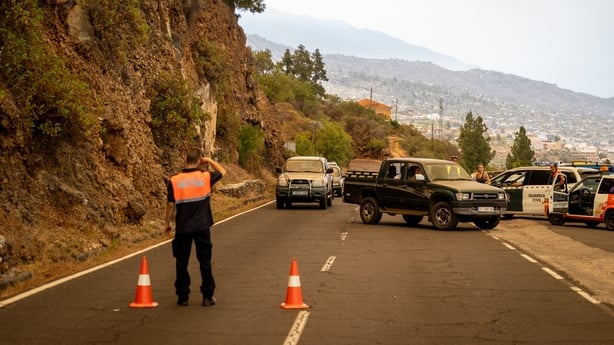At least 4,000 people have been evacuated as a forest fire burned out of control on the Spanish island of La Palma, authorities have said, as Europe struggled to cope with a heatwave.
The fire in La Palma started in the early hours of yesteday in El Pinar de Puntagorda, a wooded area in the north of the island in the Canaries.
The blaze forced the evacuation of people from the villages of Puntagorda and neighbouring Tijarafe.
Ten aerial units and 300 firefighters on the ground sought to bring the wildfire under control on the island, which forms part of a Spanish archipelago off the coast of western Africa.

At least 13 houses were destroyed as the fire advanced, said Fernando Clavijo, president of the Canary Islands.
"There has been some resistance by local people to leaving their homes, but I appeal to people to be responsible," he told reporters in La Palma.
The fire has affected more than 4,6500 hectares (114,904acres) of land, authorities said.

In Tenerife, another of the eight Canary Islands, a forest fire, which broke out yesterday, forced the evacuation of 50 people and destroyed about 60 hectares, authorities said.
King Felipe phoned Mr Clavijo to express his support with the people of La Palma, the Spanish royal household said.
The forest fire is the first natural crisis on the island since a volcanic eruption in September 2021.
More than 2,000 buildings were destroyed and many thousands of people were forced to leave their homes when lava began pouring out of the Cumbre Vieja volcano.
Ash covered the island for months until the eruption ended three months later.
In May, the World Weather Attribution, whose scientists study the link between extreme weather events and global warming, said such extreme heat would have been "almost impossible without climate change".
According to the World Meteorological Organization, Europe is the world's fastest-warming continent which has been heating at twice the global average since the 1980s.
Since the mid-1800s, the world has warmed an average of nearly 1.2C.
But in Europe, the figure is almost double, with the continent now 2.3C hotter than in pre-industrial times, the organisation said in a report at the end of June.
